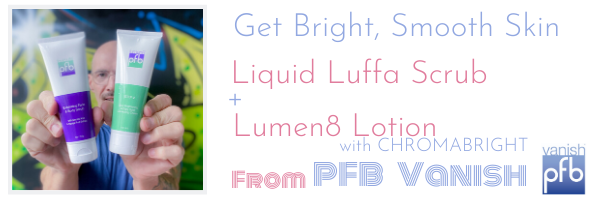6 Pillars To Treating Sensitive Skin Successfully
by Kris Fisk
What Is Sensitive Skin – Its Causes and Symptoms
What is Sensitive Skin?
Sensitive skin is becoming more commonly known as reactive skin. Skin is reacting to something it has come into contact with, most commonly a harsh ingredient in a skin care product or household cleaning agent. Common sensitive skin complaints are stinging or burning sensation, redness, dryness, dry patches, itching, swelling and hives. Sensitive skin conditions such as Rosacea, Eczema, Dermatitis’, Psoriasis, are all reactive skin conditions.
What causes Sensitive Skin?
Most skin sensitivities are created when the skin’s first line of defense, the acid mantle has been compromised or aggravated in some way. Our acid mantle is an emulsion of water and oil. It is a fatty film that covers the surface of the skin and helps to maintain the skin’s correct pH. A healthy pH level on the skin’s surface supports good bacteria and makes an uninviting environment for bad bacteria. It keeps things like allergens, irritants, harsh chemicals, extreme temperatures and UV rays from damaging our skin. Also included in our skin’s barrier defense system is the lipid layer, which is another thin layer of fatty oils that are secreted by the sebaceous glands to keep water in and skin hydrated.
What are the symptoms of sensitive skin?
Symptoms of sensitive/reactive skin can vary. Skin that feels hot, burns, stings, itches, flakes, has rash, redness, skin peeling, edema, TEWL ( transepidermal water loss), and may also include pustules, bumps, and skin erosion.
6 Pillars To Treating Sensitive Skin Successfully
1. Nutrition
Nutrition also plays a huge roll in reactive skin. Essential Fatty Acids, most importantly Omega’s 3 and 6, are building blocks for strong healthy skin and are crucial for skin to perform optimally. Essential Fatty Acids or EFA’s are not metabolized by the skin, therefore they have to be applied both topically and through one’s diet. When skin isn’t getting the proper external and internal nutrients, the skin’s barrier loses its strength and ability to fight inflammation. This creates an environment where harmful bacteria, and irritants, free radicals can cause cellular damage. Daily use of skin care products and other household cleaning agents that include certain harsh ingredients strip away our protective barrier creating a reactive skin. Foods like dairy, gluten, corn, nightshade plants and sugar are a few known causes of sensitive/reactive skin.
There are several supplements containing essential fatty acids in our article, 5 Wellness Tips To Stay Fit + Stay Well .
2. Medications
Medications are also a factor with sensitive/reactive skin. Antibiotics kill good gut bacteria leaving a breeding ground for bad bacteria. Antibiotics, Antihistamines, Diuretics, NSAIDS, oral contraceptives, and Sulfonamides are a few medications known to cause photosensitivity’s (photoallergy and phototoxicity). Steroids can cause RSS or red skin syndrome whether taken internally or applied topically. Steroids also cause collagen to break down, thinning the dermis.
External aging, UV rays and long term sun exposure cause sensitivity by breaking down skin barrier, thinning the epidermis, and depleting skin of vital nutrients like Vit C. Autoimmune disorders can also cause sensitive/reactive skin.
3. Skin Care Ingredients To Avoid
It is best to avoid using products containing ingredients like Sodium Lauryl Sulfate, Ammonium Lauryl Sulfate, Sodium Laureth Sulfate, Sodium Benzonite, Dyes, Fragrance, Drying alcohols, Triclosan, Bismuth Oxychloride, Benzoyl Peroxide, single oils or the use of only oils which in time strip your skin’s barrier, Cinnamates and preservatives like Methylisothesazolinone and Chloromethylisothiazolinone. Ingredients like AHA’s are best to avoid while repairing the skin, as they are photosensitizers.
4. Ingredients, Devices and Supplements and Sensitive Skin
Barrier repairing treatments depending on skin condition include; Gentle Enzymes, Peptides – including copper, and Red LED Light Therapy. Treatments that incorporate ingredients such as ceramides, cholesterols and fatty acids, (cremes with Omegas 3 and 6), Beta Glucan and Vitamin C are extremely important for cellular health and repair. Internally, we also need supplements including EFA’s, Beta Carotene, Vit D3 and calcium. Probiotics may also be warranted to stabilize gut flora for skin to heal.
Here are a list of product reviews that you can use you find products with ingredients for sensitive skin.
5. Skin Care Treatments To Avoid With Sensitive Skin Clients
Treatments utilizing abrasive scrubs, microdermabrasion and strong acidic peels should be avoided when treating sensitive/reactive skins. Over exfoliation can actually create sensitive/reactive skin. Heat, steam or hot towels can kill good bacteria on the skin’s surface disrupting the skin’s microbiome.
6. Skin Care Treatments For Sensitive Skin Clients
Repairing and rebuilding the skin’s acid mantle should be the objective for treating sensitive/reactive skin. First, we must find the cause of the reaction, then treat the cause not just bandaid symptoms. Here are a list of reviews that you can use you find treatments for sensitive skin.
Good Choices Can Manage Sensitive Skin Well
In a world with so many choices, ingredients and treatment protocols, choosing those that repair, rebuild, and strengthen the skin barrier is the only way to truly manage and treat sensitive/ reactive skin.

Guest Blogger – Kris Fisk
Kris Fisk is an award winning licensed master esthetician with over 7 years of experience working in the skin care industry. In 2012, at the age of 44, she graduated from esthetics school with honors and her NCEA certification. In 2013 she opened and operates Kris’ Skincare, a Paramedical Skin Revision Clinic in Royal City, Washington.
A big believer in continuing education, Kris stays informed of all the latest advances in skin care continually updating her education and skills with proven academic professionals, and doctors who really understand the nature of the skin’s barrier and how to regenerate, replenish and support it for the best results. Kris believes each client is individual and customizes holistic based treatments that are results driven. No Fluff! Results only!
In November of 2017 she was featured in Day Spa Magazine, and in June of 2019, Kris won 2nd place in the international skin competition The Skin Games in Compromised Skin. In December of 2019, Kris opened her second Paramedical Skin Revision Clinic in Moses Lake, WA.


